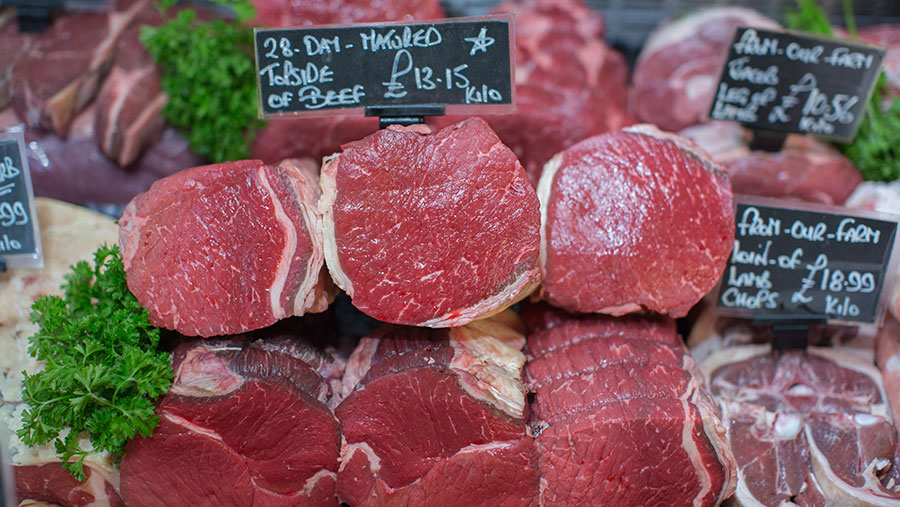Farmers reject demands for a 14% tax on red meat
 © Tim Scrivener
© Tim Scrivener Industry leaders must do more to counter calls for a new tax on red meat and processed meat, say livestock producers.
Such a tax would save 6,000 UK lives every year, and contribute more than £700m to the national economy by reducing healthcare costs, according to a study by Oxford University researchers.
See also: Scientists play down report linking processed meat to cancer
Published this week in the peer-reviewed journal PLoS One, the study suggests imposing a tax of 14% on UK red meat sales and a 79% tax on processed meat. Doing so would reduce meat consumption, although the study stops short of calling for a total end to meat eating.
The World Health Organization warned in 2015 that products such as bacon, sausages and ham could cause cancer. It has also linked unprocessed beef, pork and lamb to increased rates of coronary heart disease, stroke and Type 2 diabetes.
The study was led by Marco Springmann of the Oxford Martin Programme on the Future of Food and the Nuffield Department of Population Health. A “health levy” would send a powerful signal to consumers and take pressure off the NHS and the environment, he said.
Dr Springmann said: “I hope that governments will consider introducing a health levy on red and processed meat as part of a range of measures to make healthy and sustainable decision-making easier for consumers.”
He added: “Nobody wants governments to tell people what they can and can’t eat. However, our findings make it clear that the consumption of red and processed meat has a cost – not just to people’s health and to the planet, but also to the healthcare systems and the economy.”
Mounting pressure
The call comes amid mounting pressure on consumers to reduce meat consumption. This week, posters urging people to stop eating meat were displayed at a London tube station by campaigners who have dubbed November “World Vegan Month”.
Speaking at the Northern Farming Conference this week in Hexham, agricultural economist Alan Buckwell said consumer change posed a more serious long-run threat than Brexit to UK agriculture, especially livestock production, which was “not in a safe operating space”.
But Hexham and Northern Mart director Robert Addison said a tax would damage livestock production, which was a vital part of the local economy. The mart employed 45 people, with 25,000 cattle and 100,000 sheep passing through each year.
“It does concern me,” said Mr Addison. “There are lots of scientists who say eating meat is good for you in moderation. But that argument seems to get squashed every five minutes by vegans who seem to get better airplay in the media.”
Balanced diet
Yorkshire beef and sheep producer and NFU livestock chairman Richard Findlay said British farmers would continue to provide safe, traceable and affordable food for consumers to enjoy as part of a healthy, balanced diet.
Mr Findlay said: “Scientific and medical communities both agree consuming recommended quantities of red meat is beneficial to human health and provides the body with a ready source of essential vitamins and minerals.”
